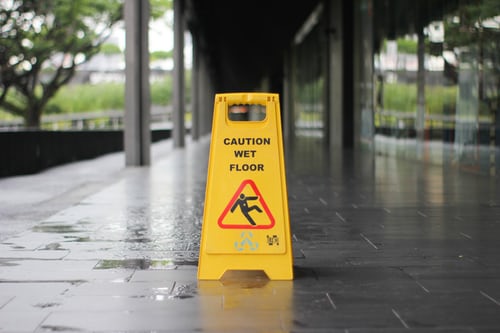Pavement Trip Claims
NoWinNoFee.com is a claims management company that helps people claim compensation for an accident or injury that wasn't their fault
With no win no fee agreements (also known as a Conditional Fee Arrangements, or CFAs), there are no upfront legal fees, which means anyone who has been involved in an accident that wasn’t their fault can gain access to justice without any financial risk. Your solicitor only gets a fee if your claim is successful. If your claim isn't successful, you won’t pay your solicitor any legal fees.
If your case is successful, typically you will pay 25% (including VAT) of your compensation to your solicitor, although they will discuss any fees before starting your case. To ensure your claim is risk free, your solicitor may take out an insurance policy on your behalf. If you terminate the agreement, you may have to pay fees for the time already spent on your claim, or due to: lack of cooperation, misleading your solicitor, missing medical or expert examinations, or not attending court hearings.
There are some instances where you are not required to use the services of a claims management company, and are able to claim yourself, for free, directly via the relevant ombudsman/compensation scheme. These include:
- Criminal injuries: The Criminal Injury Compensation Authority (England, Wales, and Scotland) or the Criminal Injury Compensation Scheme (Northern Ireland)
- Minor road accidents: The Official Injury Claim Portal
- Accidents involving uninsured drivers: The Motor Insurers' Bureau
Pavement Trip Claims
Footpath Fall Compensation
It is all too easy to slip, trip or fall. Most of the time it is simply an accident, and most of the time you just get up and keep walking, but occasionally a trip can be caused by a hazard on the pavement which should not be there. If your trip was caused by a negligent local council, then you should be able to make an accident claim.
Call now on 0800 234 6438
Who is responsible for maintaining footpaths and pavement?
Local councils must have a reasonable system for the inspection of the pavements, and for their repair and maintenance. Pavements can become a hazard through normal wear and tear, or after utility companies have been working in the area.
You may feel that your accident was your own fault – possibly that you were not looking where you were going or taking adequate care. It is important to remember that it is the responsibility of the local council to maintain the footpaths to a suitable and safe level, and your accident could have happened to anyone.
Possible hazards may include:
- Pavements raised by tree or root activities
- Cracked pavements caused by parked vehicles
- Pavement slabs put down incorrectly after a repair
- Incorrect pavement slabs used to fix a section of the footpath
- Bricks jutting out onto the footpath from a wall owned by the local council
- Missing sections of the pavement
- Broken signs or other “street furniture” which have not been repaired
- Kerbs which are misaligned, broken, raised or in another way a trip hazard
- Potholes
If you are affected by your accident, such as having to stop working for a time, or needing medical or health care assistance, these can be expensive burdens. It is important that you make a claim, and, because these claims can be tricky to win, it is even more important that you use a competent injury lawyer.
Making a Pavement Trip Compensation Claim
It is a sad fact of life, but some pavement trip claims can be difficult to win. Many local councils claim that the injury must have happened elsewhere, or that the land in question was not actually owned by the local authority. It is sometimes said that the claimant is to blame because they were not paying adequate attention, or were not wearing glasses. Other times it may be said that a fault has happened suddenly and therefore could not be caught by routine inspections.
Thankfully, by using a personal injury lawyer with experience in getting compensation for pavement trips and falls, they will be able to use their experience to argue your case. However to maximise the possibility of a successful claim you will need:
- Good photographic evidence of the hazard, including the surrounding area, close ups of the actual hazard, including using a tape measure to show the actual height of the trip point. The height of the jutting out pavement or the depth of a pothole can also be shown by using a box of matches or coin in a photo.
- A photograph which shows the hazard in relation to an obvious land mark such as a street name or recognisable building is also essential.
- Photographs showing the hazard from all directions are also very useful.
- If you have the contact information from the people who helped you after your accident or witnesses, this can also be helpful in your compensation claim.
Your personal injury solicitor will need to establish that the land is actually owned by the local authority, and also determine if the fault lies with a utility company. This can be difficult to do, and that is why it is essential that you contact an accident compensation company as quickly as possible after your accident.
Please be aware that most pavement trip claims for compensation are contested in some form, but they definitely can be won, and if you use a no win no fee solicitor, you will not lose out.


